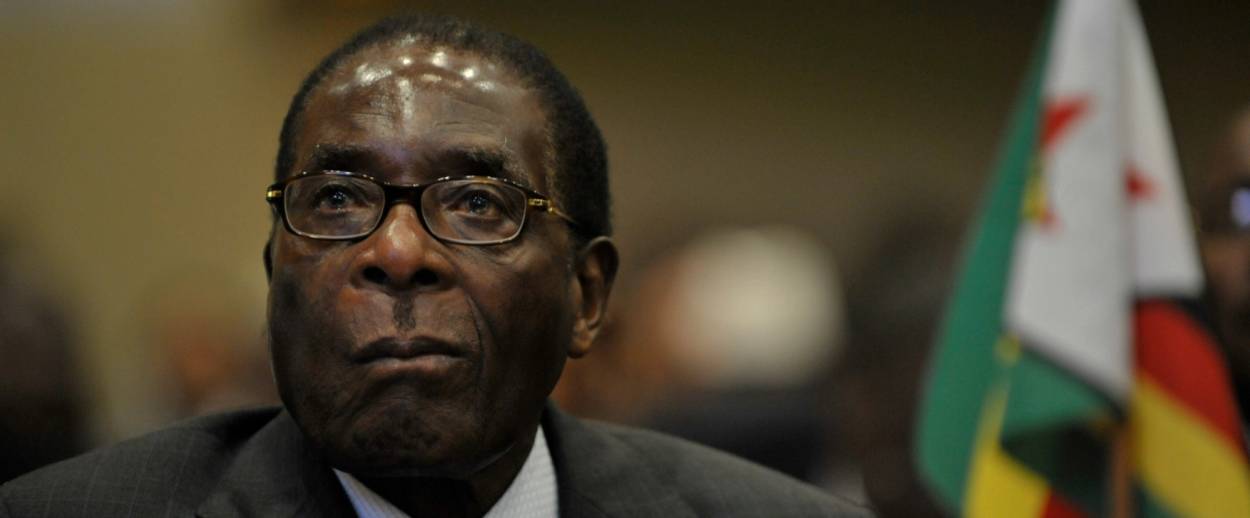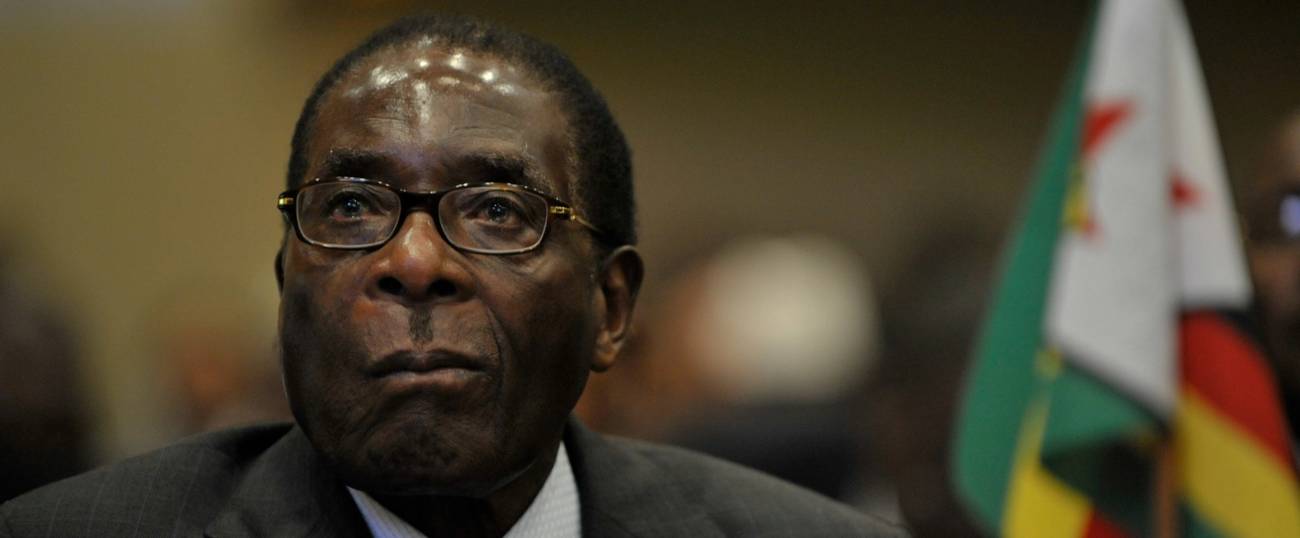Why is Everyone Suddenly Surprised That the United Nations Honored Robert Mugabe?
The international body has been feting the brutal African dictator and others like him for years. Why did it backtrack this time?




This past week, the United Nations World Health Organization appointed Robert Mugabe, the vicious autocrat who has oppressed and impoverished Zimbabwe, as a “goodwill ambassador.” According to Human Rights Watch, examples of Mugabe’s goodwill include repressing “thousands of people who peacefully protest human rights violations and the deteriorating economic situation” and empowering police to “crush dissent and violate the basic rights of civil society activists, human rights defenders, journalists, and government opponents.”
Outrage soon poured in, and the WHO announced it was “rethinking” and then “rescinding” Mugabe’s appointment. No explanation was offered as to how such a morally obtuse decision was made in the first place. But none should be necessary. That’s because the U.N. and its institutions have been coddling repressive dictators like Mugabe for decades. The surprising thing is not that the body honored Mugabe, but that it decided not to go through with it.
Indeed, the U.N. has never shied away from bestowing flowery distinctions on Mugabe. In 2011, the World Tourism Organization appointed him its International Envoy, despite the fact that he himself was under a travel ban due to his human rights abuses. At the time, The Guardian reported similar outrage:
The development has stunned human rights campaigners and political opponents, who regard Mugabe as a tyrant.
Kumbi Muchemwa, a spokesman for the Movement for Democratic Change (MDC), said: “I can’t see any justification for the man being an ‘ambassador’. An ambassador for what? The man has blood on his hands. Do they want tourists to see those bloody hands?”…
“For a man who has destroyed his country’s infrastructure and cynically engineered hunger to be an ‘ambassador’ for tourism is disgraceful – particularly as he has been personally responsible for the downward spiral of the economy and destroyed the hotel, travel and tourism industry in the process.”
Mugabe and his allies are subject to EU and US sanctions preventing them from travelling to EU countries including Britain, although he does attend the UN general assembly in New York.
Muchemwa added: “Robert Mugabe is under international sanctions, so how do you have an international tourism ambassador who can’t travel to other countries?
And yet, the WTO did not rescind the appointment. In doing so, it was simply keeping with best practices at the U.N., where regimes that serially repress their populations like Cuba, China, and Saudia Arabia currently sit on the Human Rights Council and spend their time lambasting Israel. (In the council’s history, the Jewish state has been condemned more than all other non-Jewish countries combined, including Saudi Arabia, Syria, and North Korea.)
When bad behavior goes unpunished, it gets repeated. So it should be no surprise that the WHO attempted to gift Mugabe with another plum position. When outrage over the appointment did not abate, the organization’s officials were probably left wondering why they were being penalized for following standard U.N. operating procedure.
The real question, then, is not: Why did the U.N. honor a brutal dictator? It is: Why did anyone care this time? Why did the WHO buckle in 2017, but not the WTO in 2011?
Several possible answers present themselves. First, the advent of the Trump administration and its international retrenchment has led the U.N. to fear for its funding. The United States is the body’s largest benefactor, and Republicans have long advocated trimming that support. With America’s recent withdrawal from UNESCO, those threats do not seem entirely idle. As such, U.N. bodies are no doubt on high alert to avoid embarrassing public spectacles that could imperil their funding.
Second, the new U.N. Secretary General, Antonio Guterres, has expressed a desire to embark on reform of the sclerotic and often corrupt institution. Most likely, he believes that this is both a moral and pragmatic imperative for preserving the body’s flagging authority on the international stage. If the U.N. can’t save Syria, it can at least stop granting top posts to it and other abusive regimes. Whether Guterres has the savvy and clout to push through real change, it seems the message has begun filtering down the organization he leads.
Whatever the motivation, the upshot of this little episode may be more than meets the eye. Mugabe receiving this honor was unremarkable; that he so quickly lost it could prove to be a bellwether.
Yair Rosenberg is a senior writer at Tablet. Subscribe to his newsletter, listen to his music, and follow him on Twitter and Facebook.